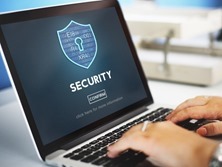In terms of small-business hosting options, cPanel is one of the most popular choices. Comparatively easy to use and reliable, cPanel offers plenty of advantages to both new and experienced website managers.
However, as user-friendly as cPanel is, you still need to take steps to keep it secure. Otherwise, you run the risk of your website being hacked and your business facing losses. Thankfully, there are some easy things that you can do to ensure the security of your cPanel server.
Password Management
Weak and insecure passwords are the greatest threat to the security of any server, and cPanel is no different. When you set up cPanel hosting, establish strong passwords for every account connected to your server (administrator account, FTP account, user account, etc.). A strong password is one that is at least eight characters long and contains letters, numbers, and/or symbols, and is not based on a dictionary word or anything else that could be easily guessed.
Consider using a password manager to help you create a secure password (cPanel itself will offer suggestions) and remember to change your passwords regularly. If you allow users to establish their own accounts to access the server, use cPanel’s password setting to require them to create passwords meeting the minimum requirements for a strong password.
cPanel also allows you to establish protection against brute force attacks. Use the settings to deny access after a certain number of failed attempts to login with an incorrect password from the same IP. If a particular IP address is problematic, you can deny access from that address, a certain domain name, or range of IP addresses from accessing your login page altogether.
Respond to Security Notifications
As part of their efforts to ensure security, cPanel sends certain security notifications by default. Not all of these notifications will be relevant to your account per se, but it’s still very important that you acknowledge the notifications that you receive and confirm whether or not you need to take action. Studies have indicated that people tend to develop blindness to security notifications, especially if they do not immediately understand the notification, but for the security of your server, be sure to investigate any notice you receive.
Monitor Your Server
Employing utilities to monitor your system for suspicious behavior, changes to settings, the need for updates to your software and more is vital to the security and stability of your system. You can also use certain commands to check on the health of your system and identify malware, rootkits, and other harmful code, and you should do so on a regular basis to keep your sites up and running and data secure.
Use a Firewall
One of the most important things you need to do to secure your cPanel is install a firewall. A strong firewall will prevent unauthorized access to your site’s backend, controlling both incoming and outgoing traffic via a set of established rules. A good security program that not only scans and monitors traffic but can also notify you of other potential security risks is a good investment and helps keep the server secure.
Install Antivirus
Installing antivirus protection on your server is almost a no-brainer. A simple plug-in can detect and block viruses before they take hold. Consider also installing a plug-in to detect rootkits, the malware that runs in stealth mode, to protect your server even more.
Update the Software
Finally, securing your cPanel requires you to update the software regularly. Older versions of any software you are running on your system may be vulnerable, so paying attention to notices regarding updates (in particular, those relating to kernel, cPanel and WHM, system software, and any applications that you’ve installed, such as blogging platforms) is important. You can set your preferences to automatically update cPanel and system software when necessary, but stay on top of the notices you receive and act quickly to ensure you are using the most stable and secure versions.
Securing your cPanel is an important task, but it doesn’t have to be complex or time consuming. By following these simple steps, you’ll be on your way to a secure and functioning web server, and won’t waste time down the road trying to correct major security issues.


